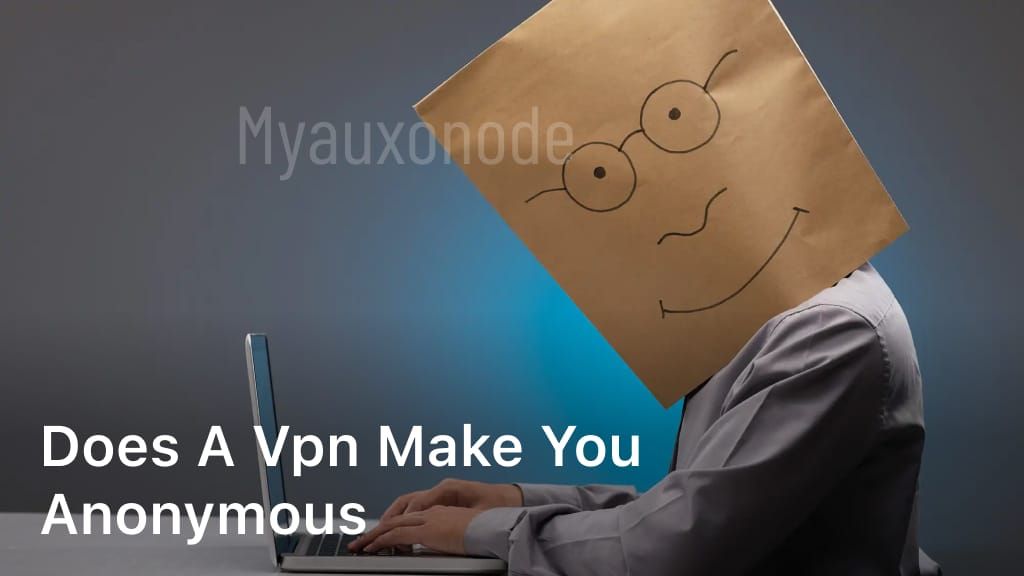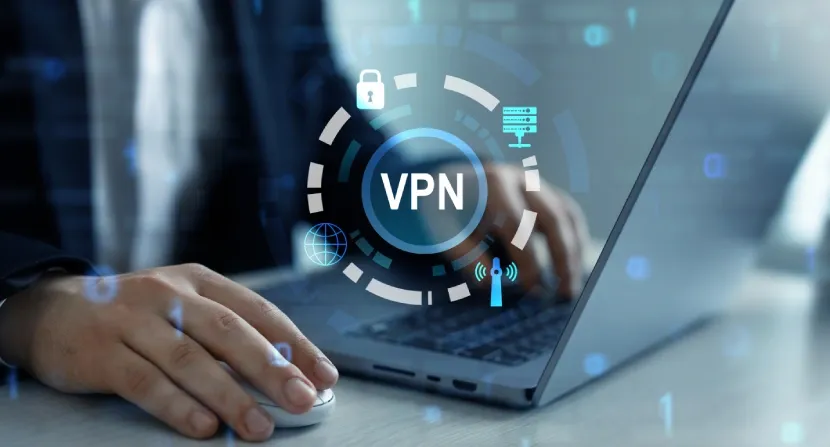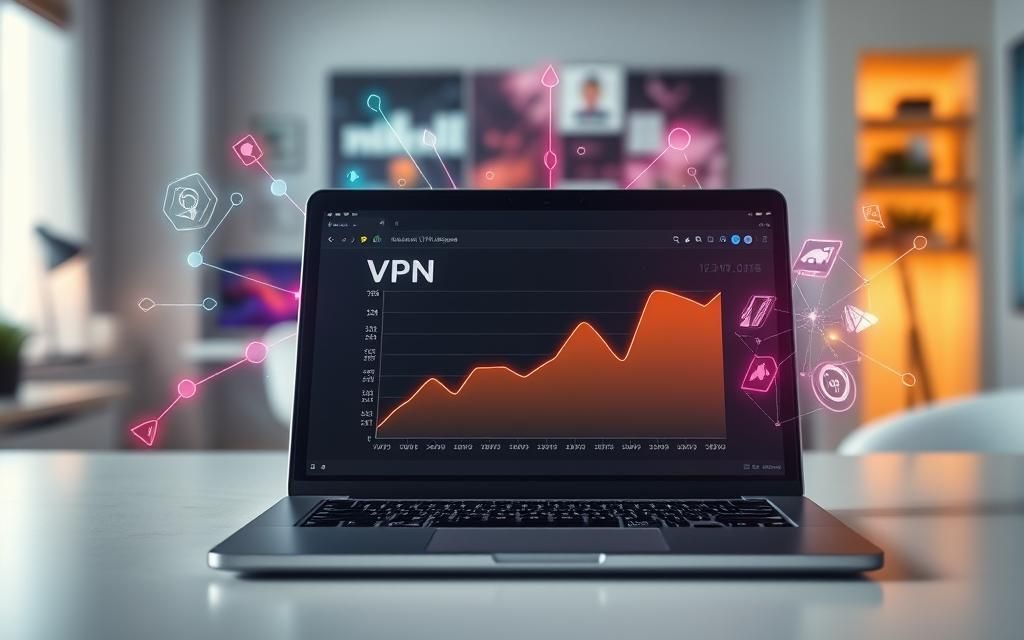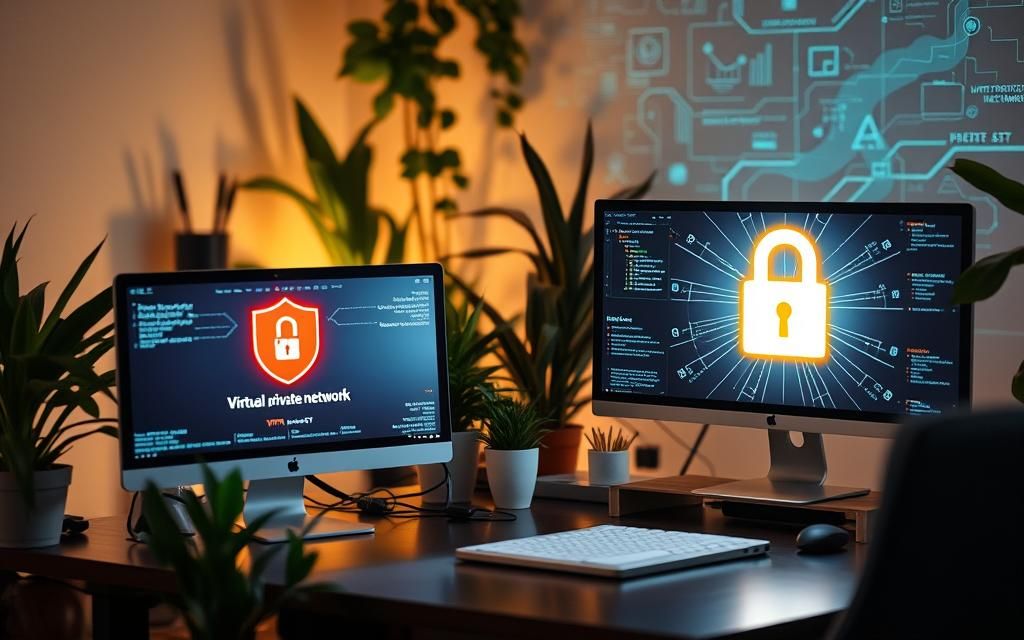In today’s digital age, where privacy concerns loom large and online security is paramount, the concept of anonymity holds significant appeal. Many individuals turn to Virtual Private Networks (VPNs) as a means to safeguard their online activities and protect their identities. But does using a VPN truly make you anonymous? Let’s delve into this question and explore the complexities surrounding VPNs and anonymity. Understanding VPNs At its core, a VPN is a tool designed to encrypt and route your internet traffic through a secure server, effectively masking your IP address and providing a layer of privacy and security. By creating a secure tunnel between your device and the VPN server, VPNs prevent third parties, such as ISPs and hackers, from monitoring your online activities. Anonymity and VPNs While VPNs offer a degree of privacy and anonymity, it’s essential to understand that they are not a silver bullet solution for complete anonymity. While they conceal your IP address and encrypt your data, they do not make you completely anonymous online. VPN Protocols and Encryption The level of anonymity provided by a VPN depends on factors such as the VPN protocol used and the strength of encryption. Some protocols offer higher levels of security and privacy than others, so it’s crucial to choose a VPN provider that implements robust encryption standards. Logging Policies Another critical factor to consider is the logging policy of the VPN provider. Some VPNs keep logs of user activity, while others operate on a strict no-logs policy. Opting for a VPN with a no-logs policy can enhance your anonymity by ensuring that your online activities are not recorded or stored. IP Address Concealment One of the primary functions of a VPN is to conceal your IP address, making it appear as though you are browsing the internet from a different location. While this can help protect your privacy to some extent, it’s important to note that VPNs do not make you completely invisible online. Potential Risks and Vulnerabilities Despite their benefits, VPNs are not without their risks. Vulnerabilities such as DNS leaks and WebRTC leaks can compromise your anonymity and expose your true IP address. Additionally, malicious actors may exploit VPN connections to distribute malware or track user activity. Legal Considerations The legal landscape surrounding VPN usage varies from country to country, with some jurisdictions imposing restrictions on VPN usage. It’s essential to familiarize yourself with the laws governing VPN usage in your region and choose a VPN provider that operates within legal boundaries. Enhancing Anonymity Beyond VPNs While VPNs are a valuable tool for protecting your privacy online, they should be viewed as just one piece of the puzzle. To achieve comprehensive anonymity, it’s essential to adopt a multi-layered approach to security, incorporating additional tools and practices such as encrypted messaging apps and secure browsing habits. Mythbusting: VPNs vs. Complete Anonymity It’s a common misconception that using a VPN guarantees complete anonymity. In reality, VPNs can enhance your privacy and security, but they cannot make you entirely invisible online. Understanding the limitations of VPN technology is crucial for managing expectations and implementing effective security measures. Practical Applications Despite their limitations, VPNs have numerous practical applications in today’s digital landscape. From accessing geo-restricted content to protecting sensitive data while using public Wi-Fi, VPNs offer valuable benefits for users concerned about their online privacy and security. Balancing Privacy and Convenience When using a VPN, it’s essential to strike a balance between privacy and convenience. While VPNs offer enhanced security, they can also introduce additional complexity and slowdowns in internet speed. Finding the right balance for your individual needs is key to maximizing the benefits of VPN usage. Choosing the Right VPN Provider With countless VPN providers flooding the market, choosing the right one can be a daunting task. When selecting a VPN provider, consider factors such as jurisdiction, logging policies, encryption standards, and user reviews to ensure you make an informed decision. Educating Users In an era of increasing digital threats and privacy concerns, educating users about online security best practices is more important than ever. By providing resources and guidance on topics such as VPN usage and data privacy, we can empower individuals to take control of their online security. Conclusion In conclusion, while VPNs offer valuable privacy and security benefits, they are not a foolproof solution for achieving complete anonymity online. Understanding the limitations of VPN technology and implementing additional security measures is crucial for protecting your privacy and staying safe in the digital world. FAQ Can a VPN make me completely anonymous online? While VPNs can enhance your privacy and security, they cannot guarantee complete anonymity. Are there any legal risks associated with using a VPN? The legal implications of VPN usage vary depending on your location and local laws. It’s essential to familiarize yourself with the laws governing VPN usage in your region. How can I enhance my anonymity beyond using a VPN? In addition to using a VPN, you can enhance your anonymity by adopting additional security measures such as encrypted messaging apps and secure browsing habits. What should I look for when choosing a VPN provider? When selecting a VPN provider, consider factors such as jurisdiction, logging policies, encryption standards, and user reviews to ensure you choose a reputable and trustworthy provider. Are there any drawbacks to using a VPN? While VPNs offer benefits such as enhanced privacy and security, they can also introduce additional complexity and slowdowns in internet speed. bokep





